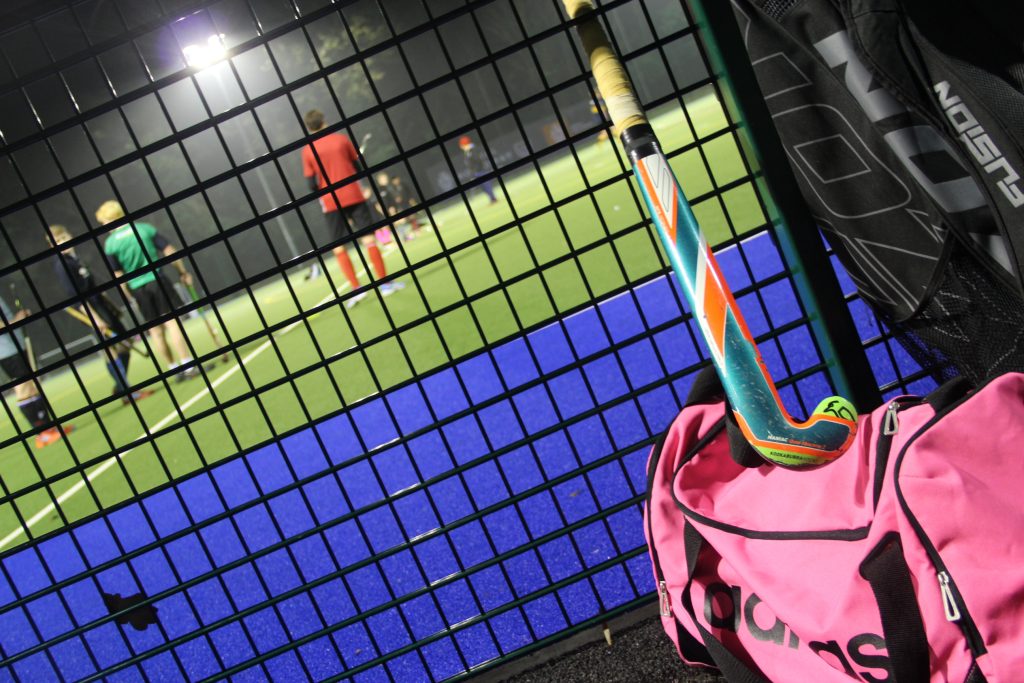
Lizzy Blackett is the President of the highly esteemed mixed sports club here at Royal Holloway, Hockey. She agreed to speak to Orbital Magazine about her role as President and the intricacies surrounding running a mixed sports club rather than a single-sex one, as so many others are.
When asked what her favourite thing about Hockey is, she tells us that “it’s just so fun” while laughing. She worries that her answer is “ridiculous” or too “obvious” but hearing her talk about the sport and how much she “love[s]” it, it doesn’t seem ridiculous at all. Her love for the sport itself fuels her passion towards the club, its members and her presidency as a whole. Blackett “started playing Hockey” when she was just six years old, and both her parents “are Hockey players” as well.
The club “prides itself on” being a mixed club as it is “one of the few clubs that actually have boys and girls playing”. It is also an incredibly “inclusive” club, Blackett affirms, as they “take anyone, from a complete beginner to a more advanced person”.
On the social side of things, sports clubs are usually infamous for their crazy socials and wild nights and, apparently, Hockey is no different. Being a part of the club, with 130 members of both boys and girls, “forms a massive part of your social life”. Outside of “socials and events”, there is something fundamental to “forming a bond with your teammates” while actually playing.
Running a mixed sports club means that Blackett must deal with double the people and double the admin, leading her to lead a very “busy” life as a result. However, she praises her committee, as they “have been amazing” and “really reliable”. The workload is huge, particularly as she is going through her third year of university, but having learnt to delegate a little bit and rely more and more on her committee, Blackett has found the experience wholly positive.
Blackett has thrown herself entirely into the Hockey club over the course of her time at university. She isn’t a part of other clubs and solely focuses on her English Literature degree and her duties as President. “Some people ask when they join if they can do two,” she says but gives an “honest answer” in advising people that “if you want to do either club properly, then it’s difficult to do both”. From my perspective, her time management skills are unparalleled as she organises her time well to complete all of her “university work” and her work with Hockey.
Being a mixed club is extremely beneficial to them when it comes to socialisation. Blackett believes that “the social side would suffer greatly” if they weren’t a mixed club. If they were a single-sex club, she would seek an “allegiance” with another club in order to grow their numbers during socials and events. The club elects a “male and female social secretary” to the committee each year, who work together to implement mixed socials every Wednesday. Their socials have been wide-ranging, from a classic toga party to a “Beer-lympics” event”. Blackett stresses that, by being an “inclusive” club, they also have “non-drinking socials” as well as “formal events” that aren’t based in a pub.
With the number of members growing every year, Blackett sees that in the future “someone will have to look at how it is managed” but she does “hope that it will have the chance to stay mixed” as she believes it to be integral to the club’s spirit and the members that love it so much.
Outside of term time, Blackett returns home to South Africa. She tells us about a school nearby called St. Francis, which the club is currently raising money for. The school is “managed by a charity” but the club itself has been able to “decide what exactly the money will go toward”, such as “classroom refurbishment and playing equipment for the children”. This charitable endeavour is more “tangible” for their members, Blackett says, as it shows them exactly who and what they’re fundraising for. They are also involved with “Sports Volunteering”, which “the sports centre are great at setting up”. Hockey members will volunteer to teach local children how to play hockey, which Blackett finds to be effective for the members to be reminded of “where they started out” and enable them to learn from each other too.
The members train and play in their single-sex teams, of which there are five – three ladies’ teams and two mens’ teams. However, they do implement some mixed fixtures within the club just for fun and to keep up the “bonding” and socialisation between members of the club.
The club is unique in that they have a ‘house system’ within it, where each member is sorted into a house, as in Harry Potter, and they then have fixtures between those houses. In each house, “there is a mixture of all abilities and teams” so that they can “make the houses as balanced and fair as possible”. Cleverly, the houses are “all named after famous Royal Holloway alumni”, such as “Davison”.
Blackett is extremely proud of her club members and seeks to engage with every member and team, as she finds it to be “extremely important”. Her proudest moment this year has been playing “centre-mid or for the 1st team in an unbeaten season but she adds that “seeing progress in the members of the club” also induces pride in her.
If someone wanted to join Hockey, Blackett would advise them to “give it a go”, particularly as they are such a “welcoming and inclusive club”, plus everyone started somewhere right? To find out more about the Hockey club, visit their Facebook page or their page on the SU website.
